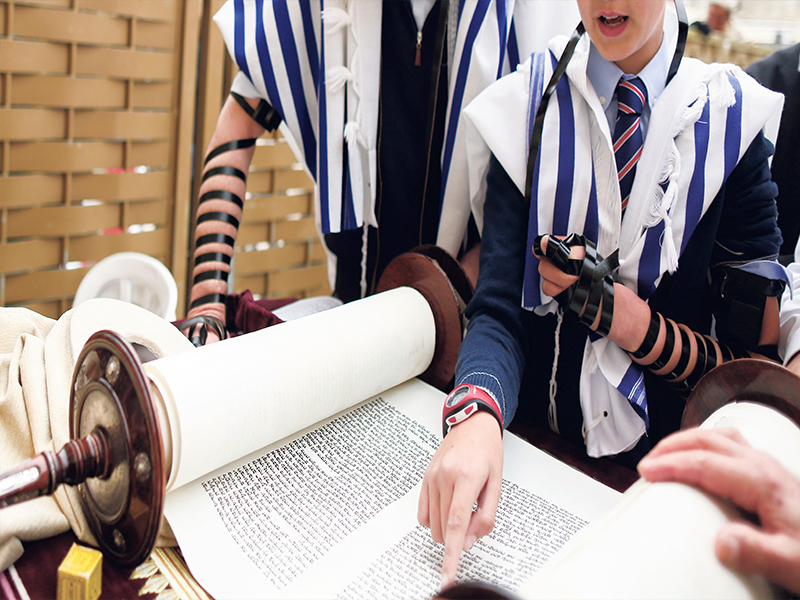When the Nazis invaded Poland in September 1939, my parents and I fled to what soon became part of the Soviet Union. Of our seven years living outside of Poland, we spent five in Uzbekistan. When we returned, it wasn’t safe to send me to a local school because of rampant anti-Semitism in post-war Poland.
I, therefore, went to a makeshift Jewish school, the main purpose of which was to teach us Hebrew and prepare us for aliyah. A classmate of mine told me that he also went to an after-school heder in the local synagogue, where he was learning Torah. I joined him.
One of the first questions the teacher asked was my date of birth. He figured that I would soon reach bar mitzvah age. I didn’t know enough to read Torah or haftarah, but he would teach me the blessings and, on a given day, I’d be called up.
When I told my parents about it, they asked if they had to come with me. I didn’t know. None of us had been to a bar mitzvah since we returned. As this was to take place on a Monday or Thursday morning, when Torah is read at services, my mother decided not to come, because women didn’t attend on weekdays. My father joined me and brought a bottle of vodka.
There wasn’t going to be any other celebration, because the circumstances didn’t allow for it. Moreover, at that time, religion had no place in our lives. My parents had been members of a left-wing Zionist group before the war. Whatever religious upbringing they may have received as children had long since evaporated.
READ: THE CASE FOR CONTINUING TO VISIT POLAND
My bar mitzvah preparation was to be my second exposure to religious Judaism. The first took place a few years earlier in Uzbekistan, when a man (whose niece and nephew and their families now live in Toronto) taught me the Four Questions to recite at our seder (which the 15 people who lived in the hut with us celebrated, as the war came to an end).
On the morning of my bar mitzvah, I read the Torah blessings. Nothing else. After the service and the vodka, the rabbi walked between my father and me, as he saw us out. He turned to us and said, “This boy is going to be a rabbi.” It sounded exceedingly unlikely, but nine years later, I began my rabbinic studies in London.
That rabbi later moved to Israel and was known for his prophetic gifts. I was told that he displayed a list of his fulfilled prophecies. Though he knew of me thanks to a friend he had in London, I wasn’t included. His prediction about me turned out to be accurate, but being a Reform rabbi, I – and by implication, perhaps he, as well – had got it all wrong.
I later taught in a religious school in a congregation in suburban London. When, on one occasion, I enquired as to why a boy I had been teaching stopped attending classes, his mother told me that he had started his bar mitzvah preparations by learning ballroom dancing and the lessons clashed with his religious school attendance.
It was customary in those days in England for the bar mitzvah boy to start the celebration by dancing with his mother. This mother was, therefore, very unhappy that I wanted her son to know something more appropriate for the occasion than dancing. So she turned to me and said that when I was her son’s age, my parents surely had the same priorities as she. When I told her that when I was that age I was selling stolen goods in a bazaar in Uzbekistan, she dismissed me by saying: “I like your sense of humour.”
